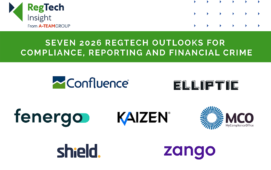Anadolubank Nederland has selected AxiomSL’s XBRL solution to deliver regulatory reports to De Nederlandsche Bank (DNB). While most European central banks mandated use of XBRL for reporting in line with European Banking Authority (EBA) requirements in 2014 and 2015, DNB came late to the game, requiring banks within its scope to report using XBRL this year.
Anadolubank Nederland, a subsidiary of Anadolubank Turkey, is using the AxiomSL solution to convert its regulatory reports from Excel into the XBRL taxonomies specified by the EBA. The solution will be used for the Common Reporting (Corep), Financial Reporting (Finrep), asset encumbrance, liquidity coverage ratio (LCR), net stable funding ratio (NSFR) and leverage ratio components of the Capital Requirements Directive IV (CRD IV).
The bank will manage the data and data aggregation required for compliance across the regulations, with the AxiomSL platform validating the data and submitting XBRL reports to the EBA. The bank plans to go live with AxiomSL next month.
Nuriye Plotkin, managing director at Anadolubank Nederland, says: “AxiomSL’s XBRL solution meets our needs exactly. The control and data validation functionality gives us complete confidence in the accuracy of the data we will submit to the regulator. As the EBA continues to release new versions of its XBRL taxonomy, AxiomSL’s quick time to market is also compelling.”
AxiomSL expects DNB’s decision on XBRL submission to increase interest in its solution in the Netherlands. It also anticipates working with more firms on XBRL projects as regulators in other countries follow suit. Beyond XBRL reporting, the company says interest in IFRS 9, MiFID II trade and transaction reporting, and the Common Reporting Standard is high. AnaCredit, which was signed off by the European Central Bank last week and is expected to be introduced in 2017, is also on the agenda.
Subscribe to our newsletter




